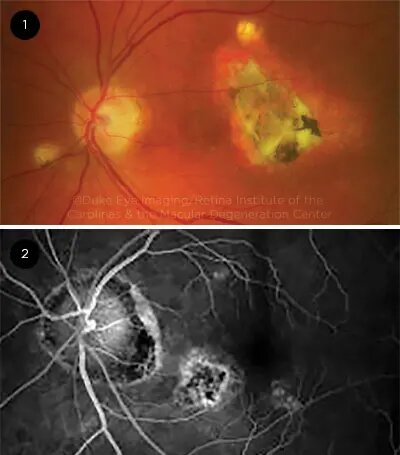Ocular histoplasmosis is a condition that affects the eyes, specifically the retina, and can cause vision loss or blindness if left untreated. It is caused by a fungal infection called Histoplasma capsulatum, which is found in soil and bird droppings.
When the spores of the fungus are inhaled, they can cause an infection in the lungs. In some cases, the infection can spread to other parts of the body, including the eyes.
The symptoms of ocular histoplasmosis can vary depending on the severity of the infection. In some cases, there may be no symptoms at all. However, in other cases, the following symptoms may be present blurred or distorted vision, dark spots or blind spots in the center of the visual field, floaters or spots in the visual field, eye pain or redness and sensitivity to light
If left untreated, ocular histoplasmosis can cause permanent vision loss or even blindness. The condition can lead to scarring and damage to the retina, which is the part of the eye responsible for transmitting visual information to the brain.
The treatment of ocular histoplasmosis depends on the severity of the infection and the extent of the damage to the retina. In some cases, the condition may resolve on its own without any treatment. However, in other cases, the following treatments may be recommended:
Anti-fungal medication: If the infection is active, anti-fungal medication may be prescribed to eliminate the fungus and prevent further damage to the eyes.
Laser therapy: Laser therapy may be used to seal off abnormal blood vessels in the retina and prevent further bleeding or leakage.
Photodynamic therapy: Photodynamic therapy involves injecting a special dye into the bloodstream, which is then activated with a laser to destroy abnormal blood vessels in the retina.
The best way to prevent ocular histoplasmosis is to avoid exposure to the Histoplasma capsulatum fungus. This can be done by wearing protective clothing, such as gloves and a mask, when handling soil or bird droppings. If you have a weakened immune system or are at high risk of developing the infection, it is important to avoid areas where the fungus is known to be present.
In conclusion, ocular histoplasmosis is a serious condition that can cause permanent vision loss or blindness if left untreated. It is caused by a fungal infection and can be prevented by avoiding exposure to the fungus. If you experience any symptoms of ocular histoplasmosis, it is important to seek medical attention right away to prevent further damage to the eyes. Treatment options may include anti-fungal medication, laser therapy, or photodynamic therapy, depending on the severity of the infection.
At The Eye Center- Dr. Mahnaz Naveed Shah & Associates our team of eight ophthalmology subspecialists/ eye specialists, eye surgeons who are considered amongst the very best eye specialists in Karachi and in Pakistan, have the diagnostic and treatment capabilities to treat from the simplest to the most complex patients. We work hard to provide our patients with the best possible medical and surgical eye care, in a state of the art purpose built eye care facility. We offer the entire array of medical, laser and surgical treatments to help provide patients the best possible care in the most efficient, safe and ethical manner.
If you need an appointment, please contact us at 03041119544 during our working hours or leave us a WhatsApp message at +923028291799 and someone will connect with you. Walk-in appointments are also available for emergencies. We can also be reached through our web portal on www.surgicaleyecenter.org

